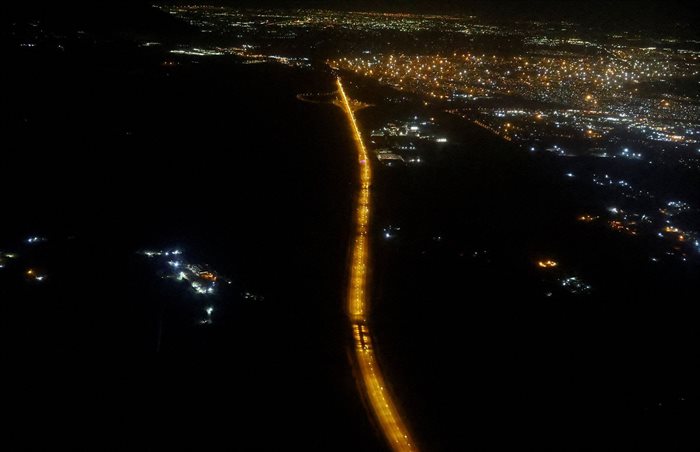
Top stories






More news


Marketing & Media
Ads are coming to AI. Does that really have to be such a bad thing?














Eskom’s general manger system operator Isabel Fick emphasised that although South Africa does have a capacity generation problem, throughout global examples, this has not caused system blackouts.
“The probability of a national blackout is extremely low. A number of other areas across the world … did have national blackouts. Nowhere will you see that [these] were because of a lack of capacity that caused a national blackout.
“In all those cases it was a cascading event starting in the transmission space,” she said during Government Communication and Information System (GCIS) webinar.
Fick said South Africa has only had regional blackouts before and load shedding had no role in both.
“We have never had a national blackout in South Africa. We have had two regional ones before. One was an event where we had a transfer limit issue to the Western Cape and the other was a snow event in KwaZulu-Natal.
“In those cases we had to deal with a regional blackout and in the case of the Western Cape, we started load shedding in 2006 which was the basis of the current load shedding regime that we are using in South Africa,” she said.
Fick said that Eskom has in place at least six “defensive barriers” that can prevent any blackout, including a reserve margin of 2,200MW available at any time.
“It starts from the building and design phase of our equipment, how we operate our equipment and also the emergency response that we have. All of those have to essentially fail before we get to a national blackout.
“Thereafter, we have to restore, should [that] ever happen. Even in that case, we have a number of plans in place, very flexible plans because it will depend on exactly what state the network is in. If we do have networks on islanding, that will be the fastest route and our estimation is between six and 14 days [for restoration] should we ever have a national blackout,” she explained.
Fellow of the South Africa Institute of Electrical Engineers Professor Jan de Kock concurred with Fick, adding that Eskom staff are improving the system daily.
“It’s fair to say that it’s highly unlikely that we’ll have a total grid collapse in South Africa. We can’t say it will never happen, but it’s really unlikely.
“Our grid at this stage is well managed and we have excellent people investigating causes of small disturbances, multiple unit trips and in the process we’re actually improving grid performance nearly on a daily basis,” he said.
Council for Scientific and Industrial Research (CSIR) senior researcher and electrical engineer Monique le Roux explained that the institution and Eskom have been working closely together to ensure that the system is continuously as stable as possible.
“Studies are going on in the background with Eskom leading this and we are supporting them where we research projects together. The aim with this is to give people comfort that there are studies that are ongoing that looks at the system on an ongoing basis to determine if the safety margins are in place, if the system can be run ably, and if mitigation is necessary,” she said.
Le Roux added that Eskom is using a power system analysis software that she says is a “very powerful tool” used throughout the world to keep the lights on safely.
SAnews.gov.za is a South African government news service, published by the Government Communication and Information System (GCIS). SAnews.gov.za (formerly BuaNews) was established to provide quick and easy access to articles and feature stories aimed at keeping the public informed about the implementation of government mandates.
Go to: http://www.sanews.gov.za